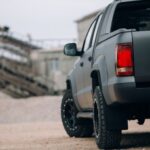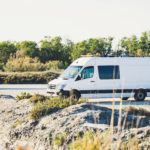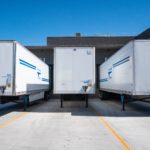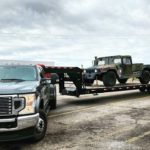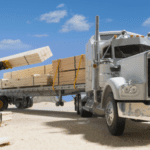STEP 1: Get a CDL
First, you’ll have to get your commercial drivers license (CDL) and get some experience. Some trucking companies have their own training programs. and some will help pay for CDL school. Many drivers who eventually become owner-operators start out as company drivers.
STEP 2: Have a plan
Your business plan should show what you expect your revenue and expenses to be. Remember that your expenses need to include your own salary. A business adviser can help you figure out the best plan.
STEP 3: What kind of company?
Common structures of trucking businesses include:
- Sole proprietorship
- Partnership
- Limited liability corporation (LLC)
- Corporation (C-corp, S-corp, etc.)
Each one has different pros and cons, and that varies with each state. You might want to meet with an accountant, to figure out what’s best for your business.
STEP 4: Start-up expenses
The tractor and/or trailer(s) are going to cost a lot of money, plus licensing requirements and registration costs can add up. Look into financing, and try to secure a line of credit. It’s a good idea to save up enough money to cover your first six months of operation.
STEP 5: Business operations
How will you deal with parking and maintenance? Where will you find loads? Who’s taking care of invoicing, accounting, IFTA, payroll, and other paperwork? Do you need to hire employees?
STEP 6: Compliance
Before you can start, your company must comply with several trucking safety rules:
- USDOT Number – This number from the U.S. Department of Transportation (DOT) is used to collect and monitor your company’s safety information, inspections, crash investigations, etc.
- Operating Authority – All for-hire carriers must have authority from the DOT to haul freight across state lines.Your authority also determines what types of freight you can haul.
- Heavy Vehicle Use Tax – Applies to all trucks that weigh more than 55,000 pounds.
- International Registration Plan (IRP) – IRP distributes registration fees based on distance traveled in each U.S. state or Canadian province. You have to register on your state’s transportation website.
- International Fuel Tax Agreement (IFTA) – IFTA is an agreement among the lower 48 U.S. states and Canadian provinces to simplify reporting of fuel use by carriers who drive in multiple states. Carriers file a quarterly fuel tax report that determines their tax and distributes it to the states. Your truck must have an IFTA decal on it, and you have to apply for a new one at the beginning of every year.
- BOC-3 Filing – This names your company’s process agent, who will be the one to get served on your behalf in any legal proceeding. You need to designate a process agent in each state where you maintain an office or establish contracts. Some companies offer blanket coverage that designates a process agent in every U.S. state.
There’s a list of links from the U.S. Small Business Admninistration to help you sort through everything. Others offer services that deal with the regulatory maze for you so you can get your authority.
STEP 7: Insurance
- Primary Liability: You must carry at least $750,000 in primary liability coverage, which covers damages or injury that result from an accident when you’re at fault. Many shippers and brokers require $1 million in liability coverage.
- Cargo: $100,000 is the most common amount for cargo coverage, but it depends on what you are hauling. Covers damage to the freight and/or theft.
- Physical Damage: Covers truck damage in accidents where you are not liable.
- Non-Trucking Use (Bobtail): Covers your liability if your truck is involved in an accident when you’re not hauling a load for someone else.
STEP 8: Get a truck and/or trailer
Below are some common types of leases:
- Operating (Full-Service) Lease: You take care of maintenance, taxes and permits, and you walk away at the end of the lease.
- Terminal Rental Adjustment Clause (TRAC) Lease: You make a small down payment, and at the end of the lease, you can cover the difference in value and purchase the truck. Or you can have the leasing company sell the truck. If the leasing company makes money on the sale, you get the profit. If it loses money, you pay the difference.
- Lease-Purchase Plans: These are for truckers who don’t have enough for a down payment or have bad credit. You may pay more in the long run on these plans, versus traditional financing.
STEP 9: Grow your business
- DAT Authority – Let DAT take the hassles out of getting your operating authority and complying with governmental regulations.
- DAT Load Boards – Searching for freight to haul? DAT Solutions operates the biggest and best load boards in North America. Search for loads nationwide—or post your truck so that freight brokers will call you.
- Freight Rates – Not sure how much to charge? Select a DAT load board package that includes current market rates on more than 68,000 lanes.
- DAT Fuel Card – Save on fuel costs at more than 1,900 truck stops nationwide.
- Freight Factoring – This financing tool allows you to increase cash flow without the use of debt. DAT has partnered with OTR Solutions to provide this service.
- Drug Testing – Get fast and reliable drug testing, plus experts to navigate the complicated regulatory system and help you maintain a safe, compliant business.
Mobile App – DAT Trucker is a free mobile app for your smart phone that will help you find the nearest truck stop, rest stop, service station, Walmart store, or trucker-friendly hotel. You can also use it to find loads available near your current location.



